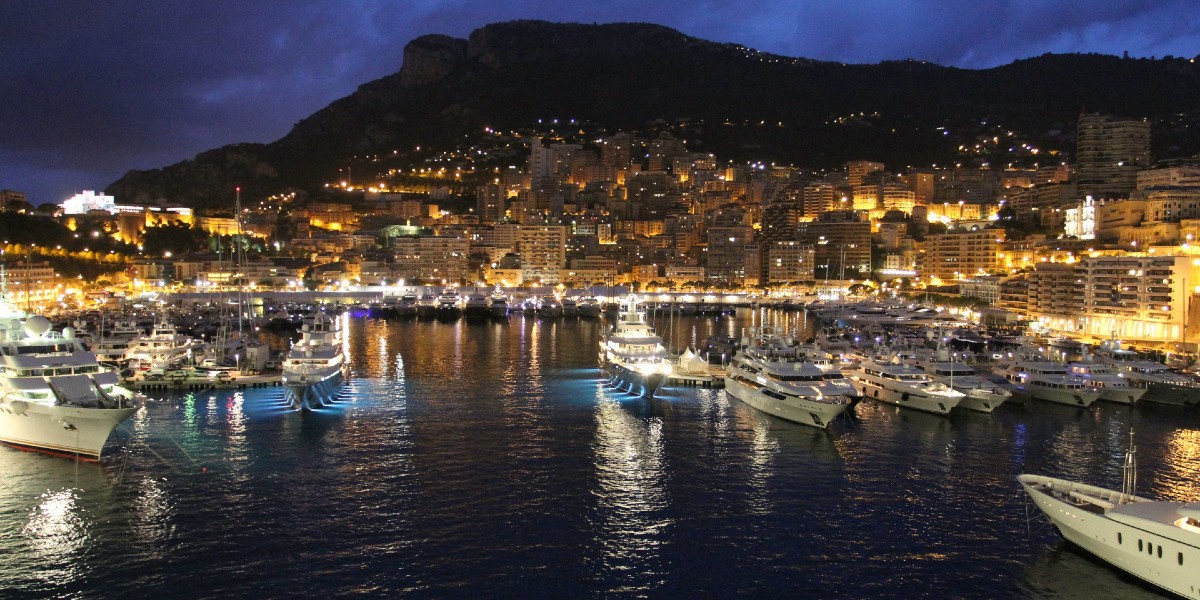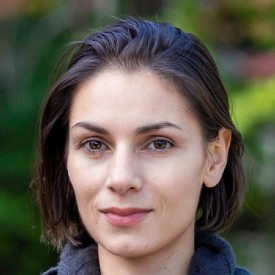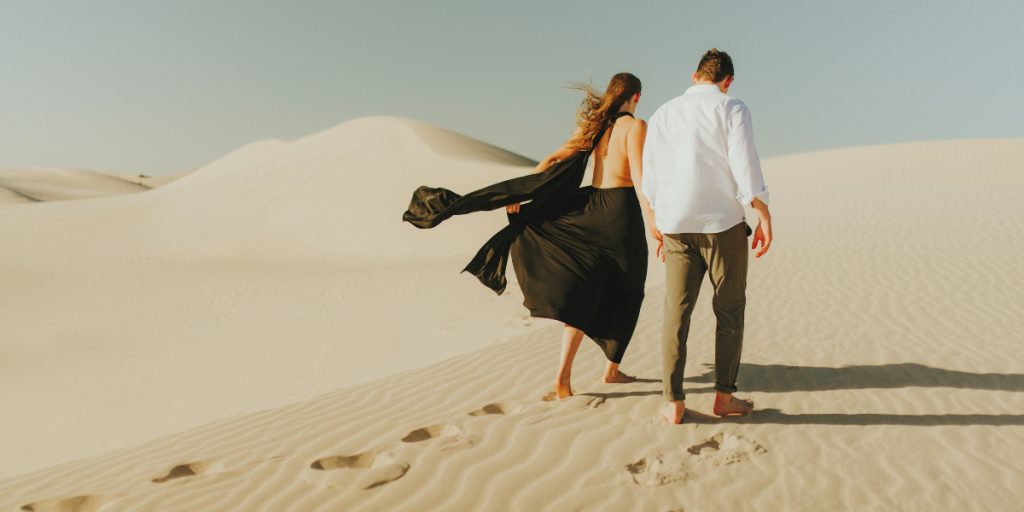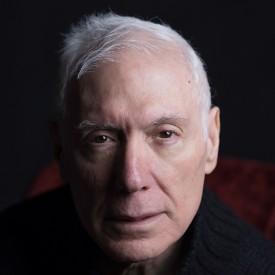Atossa Araxia Abrahamian is a journalist whose writing has appeared in The New York Times, New York magazine, the London Review of Books, and other publications. She is a 2024 New America National Fellow, has worked as an editor at The Nation, an opinion editor at Al Jazeera America, and a reporter for Reuters.
What’s the big idea?
There is a parallel world hiding in plain sight: above, beneath, between, and within territorial nation-states. A glance at the world map says nothing of the undefined, weird, secretive places that provide dangerous loopholes and support antidemocratic values. However, if we collectively shed our assumption that boundaries are straightforward, then we can make use of the Hidden Globe’s positive potential.
Below, Atossa shares five key insights from her new book, The Hidden Globe: How Wealth Hacks the World. Listen to the audio version—read by Atossa herself—in the Next Big Idea App.
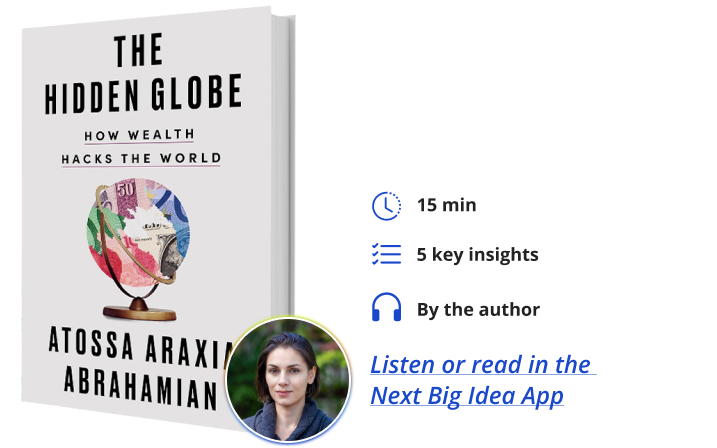
1. There’s more to the world than 192 countries.
Look at a world map. You’ll see around 200 nation-states with clear borders, boundaries, and territory. Each unit, the story goes, has its own discrete leaders, laws, rules, and representation at the UN. What you probably learned about that map in school is that this way of organizing the world has been around for centuries, since the Peace of Westphalia in 1648.
But there’s so much more to this story. The real world is more complex, weird, and interesting than it seems—for better or worse.
Until recently, the world comprised what we’d now consider territorial oddities: not just nations, but enclaves, empires, suzerainties, trading ports, and city-states. Our modern world only settled into shape after decolonization in the 1960s. But the territories of our world are as quirky as ever. Above, between, beneath, and even within our countries is a parallel universe of special economic zones, freeports, oceans, embassies, offshore refugee camps, autonomous cities, warehouses, and even outer space. These spaces all have their own rules, regulations, masterminds, and stories. But nobody knows about them. They’re hiding in plain sight.
The Hidden Globe is about these places and the forces that tie them together: capitalism, nationalism, imperialism, and the competition between countries to attract wealth to their shores, no matter what it takes.
2. Sovereignty is for sale.
National sovereignty is presented to us by politicians as sacred. It’s something outside the pressures of supply and demand. But many countries make money off the mere fact of being a country. Some sell their Internet domain names. Remember when every startup ended with .ly? That was Libya, making a killing from tech. A quainter example is postage stamps: Burkina Faso put Elvis on theirs, not because Elvis is particularly popular in West Africa, but because stamp collectors might pay big bucks to add such a stamp to their collections.
Some nations, like Malta and St. Kitts and Nevis, even sell citizenship to wealthy outsiders who want an extra passport as a plan B. A handful of states literally rent their flags to ship owners because, on the high seas, the laws of a vessel are the laws of its flag. States like Liberia and the Marshall Islands have grown their maritime registries by taxing ships very little and not asking too many questions about what happens onboard.
“A handful of states literally rent their flags to ship owners because, on the high seas, the laws of a vessel are the laws of its flag.”
This business can get dark. Nauru, a small island nation in the South Pacific, has gone through many different money-making schemes over the last few decades that all hinge on selling its sovereignty. It started off by granting foreign companies mining concessions to exploit its big stash of phosphate, an important component in fertilizer. Once its reserves ran out, Nauru rented out land to the Australian government to house asylum-seekers. Yes, a former penal colony was using another country as its own penal colony. Australia was renting Nauru to put unwanted populations out of sight, out of mind, and outside its international legal obligations.
A core function of being a nation-state is being bought and sold on the global marketplace. It’s the strange underbelly of globalization: what happens when you mix markets and geopolitics.
3. Law and land don’t always go together.
The expression “the law of the land” is shorthand for the idea that everyone in a given place must play by the same rules. That’s what justice systems are for. That’s why we have courts, judges, and the law. But what if law and land weren’t inextricable? What if, within one land, there were multiple legal systems, each catering to a different group?
This was the case for centuries around the world. There was no equality under feudalism. Colonial powers routinely taxed various national or ethnic groups at different rates and subjected them to different laws. But things are more equal now—aren’t they?
Not so fast.
Law and land have consciously uncoupled with the creation of new types of courts that cater primarily to wealthy global corporations. Startup courts have popped up in the unlikeliest places: a business park in Kazakhstan or a real estate development in Dubai. If a country wants to install a new court, there is little stopping it. It can even rent judges from other countries to enforce laws conceived by another nation at another time.
This isn’t necessarily a bad thing. Some businesses do need specialized judges to hear their case in a drawn-out bankruptcy proceeding, or a technical maritime case. But the existence of these parallel courts speaks to a certain inequality under the law: the courts tend to be for businesses, not people dealing with parking tickets, child support, or noise complaints. The law itself is the commodity here. To accommodate the needs of foreign firms, multinationals, and expatriates, countries can go so far as to offer them a separate system of justice. In my view, that sets an undemocratic precedent.
4. The Hidden Globe helps the rich hide money—and much more.
Remember the Panama Papers? The Paradise Papers, the Lux Leaks, Swiss Leaks, and Offshore leaks, and the rest of them? The ultrarich people, trusts, and companies named in them were all doing a version of the same thing: making it look like their money was both somewhere and nowhere all at once. They did this with the help of secrecy jurisdictions, meaning corporate registries that conceal basic things like who actually owns a company or where it does most of its business. That’s why we only found out once these documents were leaked to investigative journalists.
But bank accounts aren’t the only things hiding out in remote corners of the world. Take my favorite example of freeports. Freeports are warehouses with special perks, like low or no taxes, extra layers of security and secrecy, and high-end climatic controls. They’re believed to be hiding trillions of dollars worth of art, gold, wine, gems, cars, and other valuables owned by the ultrarich. These warehouses are in a country’s physical territory but outside its customs borders. This means that certain import and export fees don’t apply. The goods inside these freeports aren’t moving much, but they are technically in transit: neither here nor there.
“They’re believed to be hiding trillions of dollars worth of art, gold, wine, gems, cars, and other valuables owned by the ultrarich.”
Freeports exist everywhere, from Singapore to Luxembourg to Hong Kong to my hometown of Geneva, Switzerland. Throughout my childhood, I saw street signs for the freeport. I thought it was part of the airport or train station. I didn’t think much of it. No one did. When I discovered many years later that the Geneva Freeport was the site of a real-life tomb raider bust involving looted antiquities, I became obsessed.
That bust was at the center of a yearslong legal dispute between a Swiss art trader and a Russian oligarch. It turns out that the Geneva Freeport has an art collection to rival many museums— paintings by Picasso, Rothko, Monet—but no one can see the art because it’s packed in crates and hidden from tax collectors, vindictive ex-spouses, or money-laundering investigators.
I traveled to Dubai, the Arctic, and the China-Lao borderlands to research this book. I think it’s telling that the place closest to home—the Geneva Freeport—would not let me in for a visit.
5. The Hidden Globe is what we make of it.
Most of us will, consciously or not, dip a toe in the Hidden Globe. We might buy a bottle of Scotch in a duty-free shop at the airport or vacation on a cruise ship flying Panama or Liberia’s rented flag. We might gamble in a casino under tribal jurisdiction or admire a Da Vinci that spent decades in an extraterritorial warehouse.
It is virtually impossible to avoid using products manufactured by workers toiling in tax-exempt industrial zones in the Global South. The companies that made the computer I’m typing on, the browser I’m clicking through, and the apps I’ve used to message sources have all had high-profile disputes with lawmakers for funneling money through fictitious vehicles into low-tax jurisdictions. This parallel world of loopholes, carve-outs, and concessions surrounds us. Most of the time, it is exploited almost exclusively to provide loopholes for the world’s richest and most powerful people, corporations, and countries.
But the Hidden Globe has some potential to reduce inequality and unfreedom. Special jurisdictions can be places with open borders where people fleeing war or economic instability can just go, no questions asked. Towards the end of World War II, the U.S. established a camp in upstate New York to house Jewish families fleeing Europe. It certainly wasn’t a large-scale solution, but it did help rescue hundreds of people who wouldn’t have been able to emigrate using ordinary channels. These kinds of jurisdictions can look like environmentally protected zones helping us get to net zero. When we, as a society, let go of preconceived notions of what a country is, the possibilities are endless.
To listen to the audio version read by author Atossa Araxia Abrahamian, download the Next Big Idea App today:












